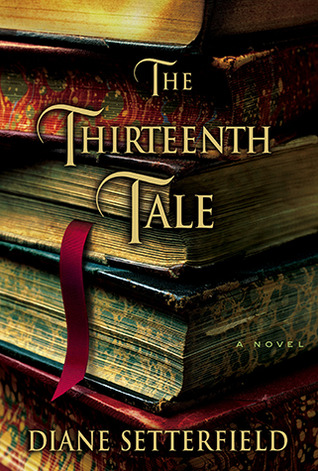My review on book The Thirteenth Tale by Diane Setterfield
The Thirteenth Tale by Diane Setterfield
Crazy house with a ghost, which one turned out to be normal ... Read or not read? That is the question! Now there is a generation of writers who re-read the classics, developed a fine literary language, copied a certain style and with a very serious kind write a full heresy. That's because of this seriousness you do not know whether to laugh or cry, because many readers in turn also seriously perceive what they wrote. Today i tell you about The Thirteenth Tale PDF download. And now I'll tell you about the book - the most important thing.
All the heroes of the story are in varying degrees of inadequacy: a couple of other perverts (Isabel and Charlie, brother and sister), twice crazy from the big love (their dad), Misiz (housekeeper - "in marasmus"), John-kopai (gardener - option "he's just that"), twins (abnormal), the main narrator ("not of this world"), her maman ("with weirdness"), Winda Viter (an eccentric writer, fond of making her own lime biographies), governess and doctor (option - "we will open a local psychiatric hospital of a name of ourselves, where we will treat the experimental") , the wife of the doctor (option - "the ghost fucked on the head with a violin, I'll hide someone in a psychiatric hospital"), a young gardener (option - "kill the chicken smoothly and cleanly" and "I actually do not have a grandmother"). In order not to get confused, keep an eye on the hands, in this story: two housekeepers, two doctors and three gardeners! only one governess, a hereditary baker and an invited maiden-biographer ... twins in general reproduce by budding, if you remember also by chance passing by the twins of a boy and a girl. Why are the characters inadequate in no way explained, do not even hope, the writing style is such that they were-they-lived and were-they-loonies and "she played her own game, which she herself invented" or "they came up with their own language, and they said, "she died and he went mad." In general, the heroes have no free will in this respect, once having gone crazy, the unfortunate are no longer able to go out of the house, and even clean up the room. Other people and the world outside of the space designated by the author, they are not interested. They do not do anything, they do not represent themselves and exist until they suddenly die from some banal ill, accidental misfortune or just like that. In all this, it would be possible to blame the author, but here we are faced with a problem - the narrative is conducted on behalf of the narrator, and she, in turn, in general retells this story as a biography for which she was hired. In passing, the girl is conducting her own investigation, trying to get to the bottom of all the details of the story, which she is told with reservations. Do you still follow your hands? We are dealing with a detective in the entourage of the Jan-Eyer sentimental novel. That is, in a deaf house with ghosts, a governess appears, hired for children abandoned by her wild cousin. Something is amiss in the house and the governess is trying to get to the bottom of the truth, but she encounters the resistance of the decrepit, but faithful servants, who obviously know something and hide it. Do not be afraid - this is not a spoiler. It's just an archetype of a story that roams from one "mysterious, Victorian haunted house" - to another. The author has managed to process this type of plot as much as twice in one book, but we will not disclose all the cards, who decide to spend time on the book - he can guess himself. But I do not advise reading. It's interesting to think and analyze what you read, noticing the writer's game with the reader and the funny details (like having replaced the romantic line with a detective, and then compensating for the replacement with a category - "each by the doctor"))), and reading from the middle was boring ... I I think that from a certain moment there are already winks to the reader "they say, do not take them too seriously." For example, when the doctor prescribes the main storyteller, a great lover of sentimental novels, Conan Doyle's detectives as a remedy for the melancholy of the past.) A direct parallel with the book you are about to read. Ah, this is the courteous language of the governess of the 19th century, all these "dared to take upon themselves the duty," "the young lady," "he was too-so, to be so-and-so," and the snow lay like that, and the shadows already were such and such, "and so it was repeated every morning for many years" - and not a word in simplicity, everything is eloquent, in detail, in English for breakfast. The language will bribe you, the style of dank fogs and the chanting of old books will lead you deeper into the narrative, and you will meet with the still-born heroes and not too meaningful processing of the typical story. By the way, to all lovers of abandoned English houses, ghosts, governesses and frighteningly eccentric kids - I advise you to go to tea "Florence and Giles" John Harding. Here with them, however, do not get bored.)

Comments
Post a Comment